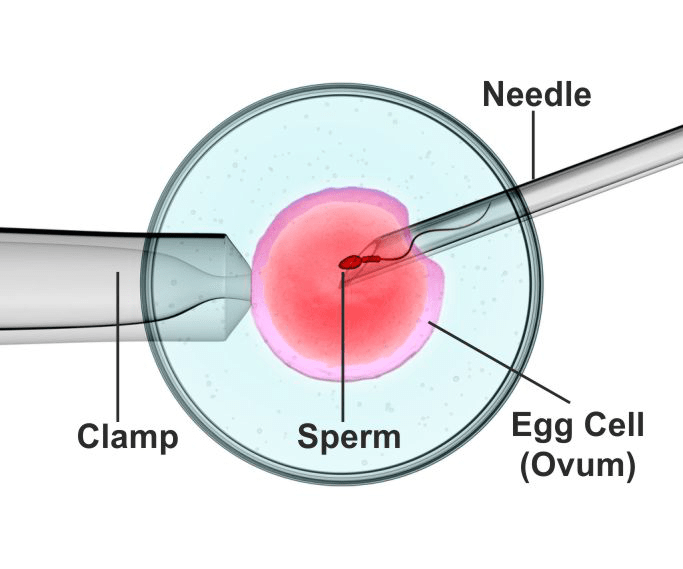What is ICSI?

ICSI (Intra-Cytoplasmic Sperm Injection) is an Assisted Reproductive Technology (ART) procedure in which a single healthy active sperm is directly injected into an egg to stimulate fertilization. It is the most common and successful treatment for male infertility.
In IVF, the eggs are mixed with sperms in a dish to achieve fertilization, and for this lot of healthy motile sperms are needed. Whereas in ICSI, a single good sperm can give the same result. The treatment will be the same as with IVF. The only difference is that instead of mixing the sperm with the eggs and leaving them to fertilize, the embryologist injects a single sperm into the egg. It increases the chance of fertilization as it bypasses any potential problems the sperm will have in getting to the egg.
ICSI procedure helps childless couples where the man has a low sperm count and compromised motility.
There are special types of equipment needed for ICSI procedure. Maa Nursing Home and NetraJyoti Eyecare Centre has the expertise and equipment to perform ICSI procedures.
Which men can opt for ICSI?
Men who have the following conditions:
- Low or zero sperm count
- Sperms are abnormally shaped (poor morphology)
- Sperms don’t move normally (poor motility)
- Obstruction in the passage of sperms
- Problem of ejaculation
- Eggs cannot penetrate the sperm
- Failed or low fertilization in previous cycles
- Inability to do IVF
- High level of antibodies against sperms
- Immunological factors
- Severe endometriosis (in women)
What are the steps in ICSI treatment?
- Initial Consultation
Our IVF team will first get various tests done on the male and female partners. It helps chart the infertility treatment plan for a successful pregnancy.
- Ovarian Stimulation
Using fertility drugs, the ovaries are stimulated to produce several high-quality eggs for retrieval. Multiple eggs increase the potential for producing several embryos, which adds to the likelihood of successful conception. During the stimulation period, ultrasound examinations and laboratory tests are performed to follow the development of the follicles.
- Egg Retrieval
When the follicles are ready for egg retrieval, ovum pick-up is done at our Infertility Clinic by inserting a needle through the vagina into the ovaries using ultrasound guidance. Fluid from the follicles is drawn into a test tube to retrieve the eggs. It is a short 15-minute procedure done under general anaesthesia.
- Sperm Collection
The male partner typically collects a semen sample through masturbation at our clinic. Usually, it is done along with egg retrieval. The semen is examined in our laboratory for selecting the best quality sperms. In some cases, the semen can be collected and preserved earlier.
- Embryo Culture

In this process, a single sperm is injected directly into the egg. Eggs are examined the next day for evidence of fertilization.
- Embryo Transfer
Two to five days after fertilization, we transfer the embryos into the uterus by passing a thin embryo transfer catheter through the cervix. A blood pregnancy test is scheduled approximately two weeks after the embryo transfer. One week after a positive pregnancy test, we conduct an ultrasound (Sonography) to reconfirm the pregnancy.
What are the risks of this procedure?
ICSI or IVF born children are normal. There is no increased risk of abnormalities or developmental delays in offspring born from these techniques. ICSI may carry an increased risk or the transmission of selected genetic abnormalities to offspring, either through the procedure itself or through the increased inherent risk of such abnormalities in parents undergoing the procedure.